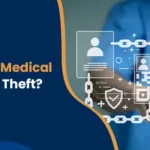What is the HITECH ACT?

July 16, 2024
The Health Information Technology for Economic and Clinical Health (HITECH) Act was signed into law back in 2009. At the time, many healthcare providers were still relying on paper-based records. The goal of the HITECH Act? Help hospitals and clinics make the switch to digital—and improve patient care while doing it.
After it went into effect, EHR (electronic health record) adoption really took off. Before the act, hospitals were adding EHRs at a slow pace—around 3.2% per year. But once HITECH incentives came into play, that number jumped to 14.2% annually. About 86% of hospitals set their sights on qualifying for those incentives.
And there’s more to it. The act also made HIPAA’s privacy and security rules even stronger. Let’s unpack what HITECH was aiming for and why it’s still relevant today.
What Is the Purpose of the 2009 HITECH Act?
The HITECH Act isn’t just about upgrading technology. It was designed to transform how healthcare systems store, access, and use health data. It encourages providers to adopt electronic health records (EHRs), make care more personalized, and ensure data is protected under HIPAA.
By aligning with HIPAA and offering financial support, the act helped lower the barriers that were keeping many organizations from going digital.
What Is the Impact of the HITECH Act on EHR Adoption?
The HITECH Act had a major influence on how electronic health records (EHRs) were adopted across the U.S. healthcare system. Its impact can be seen in several key areas:
- It sped up EHR adoption in small, physician-owned practices that had previously been slow to go digital.
- Hospitals that qualified for the program saw a sharp rise in their EHR adoption rates.
- Financial incentives made a big difference in helping physicians decide to make the switch.
- The push for EHRs encouraged more innovation and competition within the health tech industry.
- Most importantly, it laid the groundwork for better healthcare outcomes through the meaningful and effective use of digital records.
What Are the Benefits of EHR Adoption Under the HITECH Act?
The adoption of electronic health records (EHRs) under the HITECH Act brought a wide range of improvements to both healthcare providers and patients:
- Better Health Outcomes: EHRs make it easier for care teams to access and share patient information, which improves coordination and helps reduce medical mistakes.
- Financial and Operational Gains: Digital systems streamline day-to-day operations, cutting down on paperwork and overhead costs.
- Stronger Research Capabilities: With access to large amounts of patient data, researchers can conduct population health studies and support breakthroughs in medical science.
- Improved Patient Experience: EHRs make it easier for patients to communicate with their providers and access their own health records, which boosts satisfaction.
- Support for Quality Improvement: EHRs help track key performance metrics and outcomes, allowing providers to make data-driven decisions and implement best practices.
- Lower Long-Term Costs: While switching to EHRs can be expensive upfront, over time, they help reduce unnecessary tests and duplicated procedures.
- Enhanced Safety: EHR systems reduce the chance of medication errors and make diagnoses more accurate by offering timely alerts and up-to-date information.
🔗 Read More: History of HIPAA from creation to the current day
What Challenges Came with Implementing the HITECH Act?
While the HITECH Act brought major improvements, putting it into action wasn’t without its hurdles. Some of the biggest challenges included:
- Limited Data Exchange: Many EHR systems couldn’t easily communicate with each other, making it hard to share patient information across providers.
- Lack of Standardization: Different systems used inconsistent data formats, which made it tough to compare results or conduct meaningful outcomes research.
- Privacy and Security Concerns: With more digital data being exchanged, healthcare organizations had to work harder to protect patient privacy and meet HIPAA standards.
- Medication Management Issues: Some providers were hesitant to rely on digital records due to concerns about the accuracy and reliability of EHR data.
- Gaps in Trust and Data Quality: Inconsistent record-keeping across systems made providers wary of the information they were receiving.
- Resource Limitations: Many organizations needed more funding, staff training, and policy updates to successfully adopt and manage EHR systems.
- Rural Healthcare Gaps: Providers in rural areas faced additional barriers, including limited infrastructure and weaker data exchange networks.
What Are Meaningful Use (MU) Incentives?
To make sure EHRs were being used effectively, not just installed, the Centers for Medicare and Medicaid Services (CMS) rolled out the “Meaningful Use” program under HITECH.
It rewarded healthcare providers who used certified EHR technology to:
- Improve patient outcomes
- Protect patient privacy in line with HIPAA
- Share information securely across systems
The idea was simple: encourage smarter use of digital tools to raise the standard of care.
What Role Does the HITECH Act Play in Improving Patient Safety?
One of the core goals of the HITECH Act is to make healthcare safer for patients. Here’s how it supports that mission:
- Boosting EHR Adoption: By encouraging the use of electronic health records, the act helps providers deliver more efficient, coordinated, and accurate care.
- Reducing Errors: Health IT systems, supported by HITECH, are designed to catch potential medication errors and adverse drug reactions before they reach the patient.
- Tracking and Learning from Mistakes: Digital records make it easier to collect and analyze data on medication errors, helping providers improve safety protocols.
- Supporting Public Health Efforts: Through financial incentives, HITECH helps providers take part in broader public health programs, which benefit entire communities.
- Building Stronger Systems: The act laid the foundation for a modern digital infrastructure that supports safer, higher-quality, and more cost-effective care over the long term.
🔗 Read More: What is HIPAA Violation?
Conclusion
Since it was passed in 2009, the HITECH Act has made a lasting impact on the healthcare system, most notably by driving the widespread adoption of electronic health records (EHRs). This shift has helped improve patient care, enhance safety, and reduce long-term costs.
Of course, challenges like interoperability issues and inconsistent data standards still exist. But even with those hurdles, the act has fueled meaningful innovation and quality improvement across the industry.
To fully realize the benefits of EHR adoption, healthcare organizations should continue focusing on data-driven strategies, like advanced analytics and clearly defined metrics, to deliver smarter, safer, and more efficient care.





